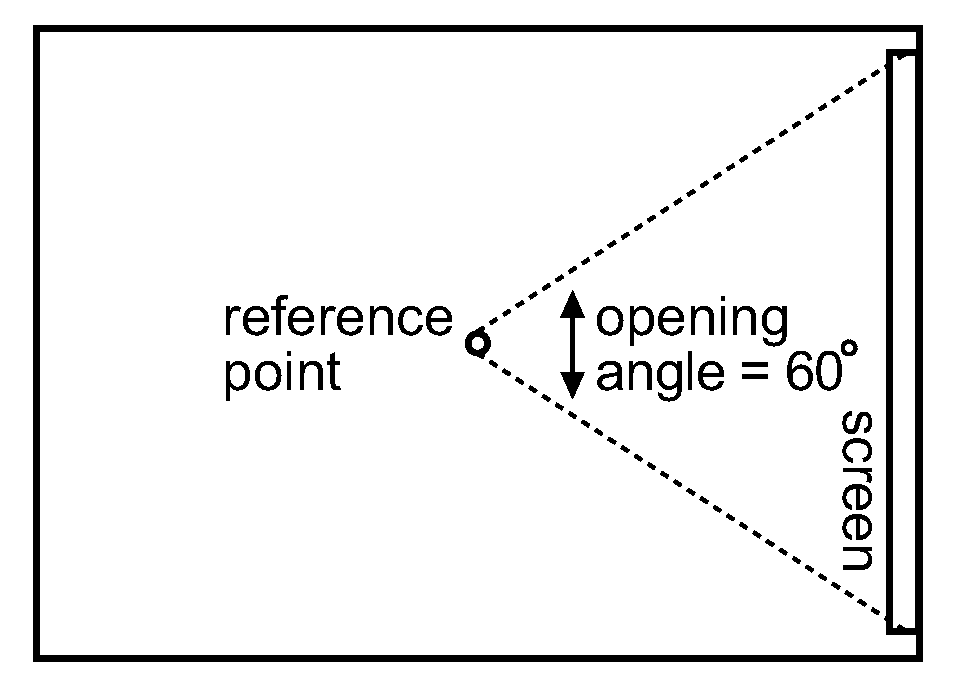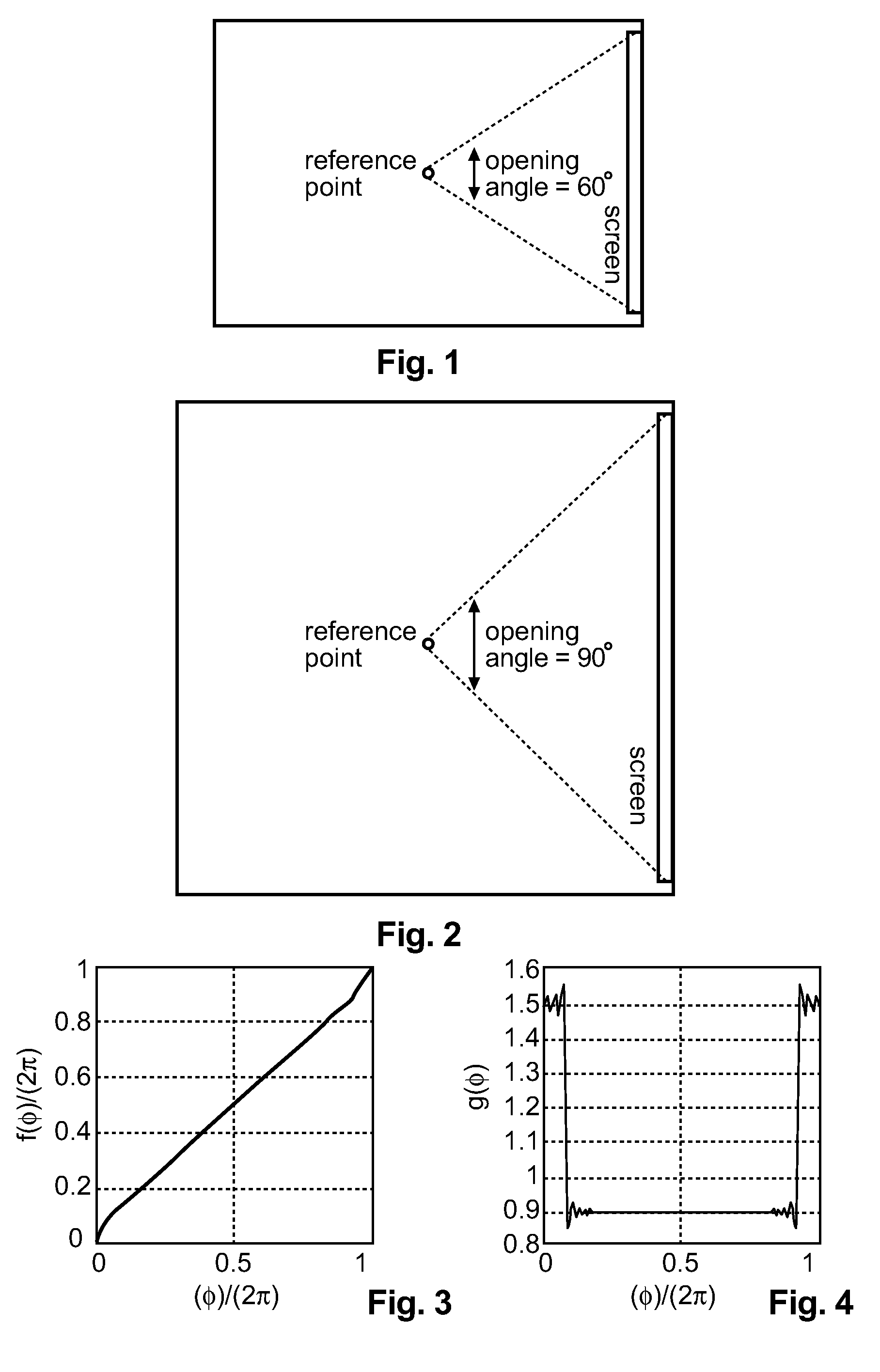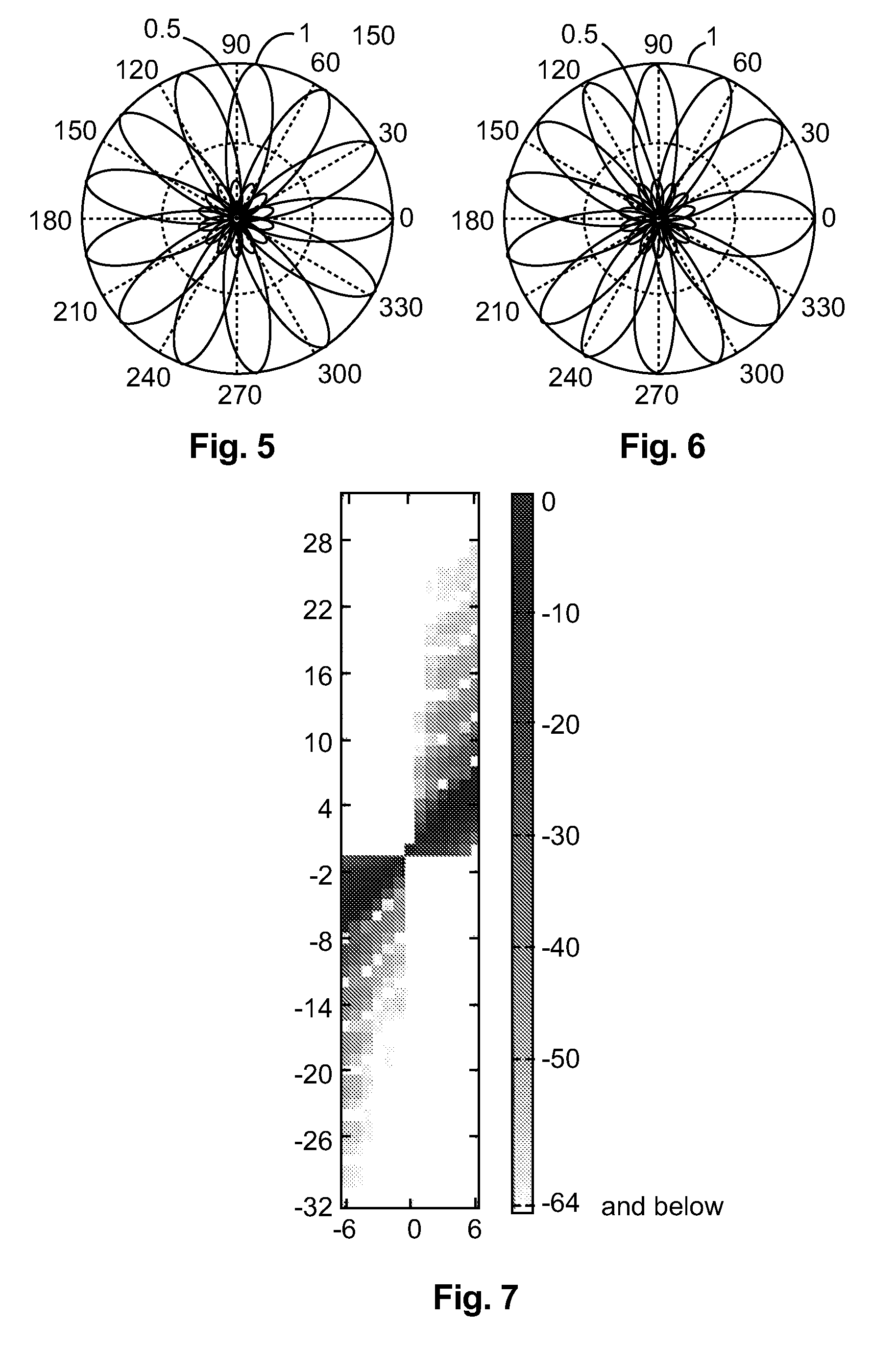Method and apparatus for playback of a higher-order ambisonics audio signal
a technology of ambisonics and audio signal, applied in the field of methods and apparatus for playback of original higher-order ambisonics audio signal, can solve the problems of increasing the disadvantage of loudspeaker channels, affecting the quality of sound reproduction, and affecting the effect of sound quality,
- Summary
- Abstract
- Description
- Claims
- Application Information
AI Technical Summary
Benefits of technology
Problems solved by technology
Method used
Image
Examples
embodiment 1
Separation Between Screen-Related Sound and Other Sound
[0069]Such control technique may be required for various reasons. For example, not all of the sound objects in an audio scene are directly coupled with a visible object on screen, and it can be advantageous to manipulate direct sound differently than ambience. This distinction can be performed by scene analysis at the rendering side. However, it can be significantly improved and controlled by adding additional information to the transmission bit stream. Ideally, the decision of which sound items to be adapted to actual screen characteristics—and which ones to be leaved untouched—should be left to the artist doing the sound mix.
[0070]Different ways are possible for transmitting this information to the rendering process:[0071]Two full sets of HOA coefficients (signals) are defined within the bit stream, one for describing objects which are related to visible items and the other one for representing independent or ambient sound. In...
embodiment 2
Dynamic Adaptation
[0075]In some applications it will be required to change the signaled reference screen characteristics in a dynamic manner. For instance, audio content may be the result of concatenating repurposed content segments from different mixes. In this case, the parameters describing the reference screen parameters will change over time, and the adaptation algorithm is changed dynamically: for every change of screen parameters the applied warping function is re-calculated accordingly.
[0076]Another application example arises from mixing different HOA streams which have been prepared for different sub-parts of the final visible video and audio scene. Then it is advantageous to allow for more than one (or more than two with embodiment 1 above) HOA signals in a common bit stream, each with its individual screen characterization.
embodiment 3
Alternative Implementation
[0077]Instead of warping the HOA representation prior to decoding via a fixed HOA decoder, the information on how to adapt the signal to actual screen characteristics can be integrated into the decoder design. This implementation is an alternative to the basic realization described in the exemplary embodiment above. However, it does not change the signaling of the screen characteristics within the bit stream.
[0078]In FIG. 8, HOA encoded signals are stored in a storage device 82. For presentation in a cinema, the HOA represented signals from device 82 are HOA decoded in an HOA decoder 83, pass through a renderer 85, and are output as loudspeaker signals 81 for a set of loudspeakers.
[0079]In FIG. 9, HOA encoded signal are stored in a storage device 92. For presentation e.g. in a cinema, the HOA represented signals from device 92 are HOA decoded in an HOA decoder 93, pass through a warping stage 94 to a renderer 95, and are output as loudspeaker signals 91 for...
PUM
 Login to View More
Login to View More Abstract
Description
Claims
Application Information
 Login to View More
Login to View More - R&D
- Intellectual Property
- Life Sciences
- Materials
- Tech Scout
- Unparalleled Data Quality
- Higher Quality Content
- 60% Fewer Hallucinations
Browse by: Latest US Patents, China's latest patents, Technical Efficacy Thesaurus, Application Domain, Technology Topic, Popular Technical Reports.
© 2025 PatSnap. All rights reserved.Legal|Privacy policy|Modern Slavery Act Transparency Statement|Sitemap|About US| Contact US: help@patsnap.com



